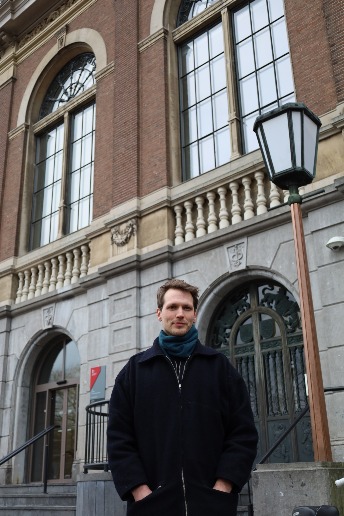PhD Defence Bram van Vulpen |Politics out of place

Regularly indignant protesters appear in the news pointing an accusing finger at politicians "in The Hague" or people "from the Randstad" who allegedly have no regard for people in the countryside and on the outskirts of the country. Think for example of the recent farmers' protests, the protests against natural gas extraction in the Groningen region or the resistance against the return of the wolf. There is often talk about "the gap" between city and countryside or between the Randstad and the region.
In his dissertation Politics out of place, Bram van Vulpen investigated the so-called geography of discontent, by looking at how feelings of discontent are spread across regions and which regional disparities can explain contemporary discontent.
The Netherlands as an interesting case study
At the start of Bram van Vulpen's PhD project in late 2018, little was known about the different feelings of discontent and the many sources underlying the geography discontent. The vast majority of studies looked within the context of the most likely cases (most likely cases) for place-based discontent such as the United States and the United Kingdom. The geography of discontent was also often seen only as a populist threat, and as result of that much was still unclear about the different feelings of discontent that residents might share regardless of their voting behaviour. With a view from socio-spatial justice, Van Vulpen's doctoral research also views discontented citizens as potentially vulnerable groups who may be disadvantaged by regional inequalities, lack of recognition and underrepresentation in politics. His research took a close look at the Netherlands, which from an international perspective can be considered a least likely case for the geography of discontent. Besides being small and densely populated, the Netherlands is also a very prosperous country with a proportional democracy without a district system.
Regional development and investments
In his dissertation, Bram van Vulpen uses survey data to show that - even in the Netherlands - there are clear regional differences in the degree of discontent, such as institutional distrust and feelings of disregard for one's region by national politics. Place-based discontent in particular is present in high concentrations in rural areas at the edges of the country. Contrary to popular belief, regional economic decline does not offer a likely explanation for regional discontent in the Netherlands. Regional divergence and decline are primarily found in demographic changes. Institutional trust distrust and dissatisfaction with regional redistribution policies are more pronounced in regions with lower average incomes, population shrinkage and ageing populations. Although the Dutch national government problematised "disadvantaged" and "lagging" regions in recent spatial redistribution policies, the policy instruments were to a limited extent designed to invest specifically in the weakest regions. With a critical policy analysis of the recently implemented Region Deals (2018-2022), Bram van Vulpen shows that the central government had an incoherent idea of spatial justice and thus the allocation of regional investments.
Mapping political representation
The dissertation of Bram van Vulpen also maps the political representation of regions in the Netherlands. Together with the Center of Information and Technology, he built a unique geo-referenced comprehensive dataset for the period from 1994 to 2021, consisting of (a) the place of birth and residence of members of parliament, named places in parliamentary questions, and (c) survey data of regional discontent. They have also made this data publicly accessible via the website: https://www.tweedekamerinkaart.nl.
In his analysis, Bram van Vulpen distinguishes four types of regions:
1) a dominant centre with relatively many members of parliament from the Randstad region and little regional discontent
2) a comfortable middle with regions that were generally underrepresented and had low levels of regional discontent
3) a vocal periphery with regions that were relatively overrepresented and had high levels of regional discontent
4) an unseen or silent periphery where few members of parliament came from and scored above average on regional discontent.
Bram van Vulpen will defend his dissertation Politics out of place on Wednesday, Oct. 4, at the University of Groningen, Campus Fryslân. At 13:30 the layman’s talk starts and from 14:00 the promotion ceremony is in the Beurs, Wirdumerdijk 34 in Leeuwarden. If you cannot attend in person, you can follow the defence via the livestream.
About Bram van Vulpen
Bram van Vulpen (1989) graduated in sociology and began his PhD research at the University of Groningen, Campus Fryslân at the end of 2018. He is currently a lecturer at the University of Amsterdam, Department of Geography, Planning and International Development.
